laying awake at night wondering wtf the point is
how accepting life's hardest realities can transform your mental health
Can we ever really understand truth? Across the ages, from ancient philosophers to modern thinkers, the quest to define 'truth' has twisted through complex debates and existential inquiries.
We now find ourselves in what's often referred to as a 'post-truth era,' where objective facts are often overshadowed by emotional appeals and divisive viewpoints, leaving us to wonder:
What the hell does 'truth' even mean today?
In today's world, it’s hard to scroll through social media or consume any content without being bombarded with overwhelming amounts of death, destruction, and division. Everyone with an account is adding their two cents, creating a claustrophobic and chaotic blend of opinions and emotions.
There seems to be little real effort to understand or change the current state of the world, which would ironically start with changing ourselves. Instead, there’s a pervasive (and likely unconscious) desire to dehumanize, tear each other apart, and prove one another wrong.
We’ve all become little digital policemen, monitoring each other’s behaviors, convincing ourselves we’re part of some transformative activism. In reality, this behavior only deepens our collective suffering and blocks any path to meaningful change. We’re just too blind to face reality – to face the truth.

In this era of uncertainty and chaos, where we're reduced to mere digital avatars driven by raw emotion and delusion, finding anchors in truths that transcend the digital hellscape of social fluctuations becomes crucial. This is one of the most vital steps we can take for ourselves. Our lives – and our inner peace – quite literally depend on it.
The Truth Hurts
A friend recently introduced me to the book 'Sacred Psychiatry' by Dr. Judy Tsafrir. As I was reading, I found myself frozen on the page where she introduces a concept from Buddhist philosophy called 'The Five Remembrances.'
For those who may not be familiar, I’ll list them below:
I am of the nature to grow old. There is no way to escape growing old.
I am of the nature to have ill health. There is no way to escape having ill health.
I am of the nature to die. There is no way to escape death.
All that is dear to me and everyone I love are of the nature to change. There is no way to escape being separated from them.
My actions are my only true belongings. I cannot escape the consequences of my actions. My actions are the ground upon which I stand.
Oof.
Reading these statements, I felt that all-too-familiar tightness in the back of my throat—the urge to avoid reality.
It was right there in black and white: these five lines of text revealed the inescapable truths of human existence. These are the truths none of us want to face, the ones we usually run from. Yet, if we were brave enough to accept them, we'd see that all the time we spend hating one another and engaging in this emotion-fueled digital Truman Show is just a distraction. A distraction from what truly matters: actually living our lives, treating our fellow human beings and our world with compassion, and recognizing the preciousness of each moment and the impact of our own choices and actions.
It's heartbreaking how many of us spend our lives running from these simple truths:
We're all going to grow older, (potentially) get sick, and eventually die; we’ll have to say goodbye to everyone and everything we hold dear; and the actions we take are what truly define us, shaping our moral and spiritual foundations.
These are all facts. Inescapable truths that are baked into the human contract.
Don’t Think About It
I hated bedtime as a child. Ever since I was very young, I would lay awake at night absolutely paralyzed with existential terror. The questions that would fly around my mind were too big and complex for my still-developing brain to hold without feeling like it was crumbling at the seams.
“What happens when I die?”
“Where was I before I was born?”
“Will I have to watch everyone I love die?”
“Who will be taken from me too soon?”
“How can I live each day knowing all that awaits is death for myself, for those I love, and then... just nothing, forever?”
I remember mostly clearly the terror that gripped me at the mere thought of 'forever.'
Each time I contemplated being dead for eternity, my body would seize up, trapped in a state of profound fear. The enormity of forever was so overwhelming that it felt as if my brain was short-circuiting, unable to process the infinite, unable to bear the insurmountable weight of eternal non-existence. It was as though my young psyche was crumbling under the heavy, dark cloak of infinity.
Early on, I tried to confide in the adults around me about my fears. When I brought up the forever-ness of death and my curiosity about where—and what—I was before being born, I was often met with dismissive responses:
“Don’t think about those things.”
“Why are you thinking about that?”
I could sense I had ventured into forbidden territory. My child’s mind absorbed the message that these were not normal questions, that even the grown-ups were unnerved by these thoughts and didn’t know how to handle them. This realization frightened me even more.
The implied answer was clear:
Push it down. Suppress. Repress. Don’t even think about these fundamental truths.
During this period, probably between the ages of eight and eleven, I became deeply fascinated with books about ancient Egypt. Their view of death intrigued me—it wasn’t seen as the end but a passage, accompanied by intricate rituals for preparing the dead. This stood in stark contrast to the palpable silence and fear around death in my own culture, where everyone seemed to avoid the subject entirely.
The photographs of mummies and the tools used for their preservation both terrified and captivated me. Yet, this fascination brought with it a sense of peace, too. It comforted me to know that, even if millennia ago, there were people who considered these existential questions not only significant but perhaps not so terrifying.
This gave me a sliver of hope: maybe death wasn’t the absolute end. Maybe I wasn’t crazy for being fixated on my culture’s denial of life’s impermanence.
The Modern Dark Age
I didn’t realize until much later that the ancient Egyptians weren’t the only ones who deeply contemplated death and the fleeting nature of human existence. It seems those of us in the West, with our 'modern' approach of avoiding, suppressing, and repressing, are actually in the minority.
Many ancient cultures, which we ironically often dismiss as ‘primitive’ or belonging to the 'dark ages,' might look at our denial of life’s basic truths with both pity and confusion. I’m convinced that our collective avoidance of these realities is a huge contributing factor to the current 'mental health epidemic'— but more on that later. We’ll stick a pin in that for now.
In Theravada Buddhism, monks engage in something called 'corpse meditation.' Yes, it’s exactly what it sounds like: meditating in the presence of dead bodies. This practice serves as a stark reminder of life’s impermanence. I can imagine few things that strip away the illusions of permanence and ego as effectively as confronting death so directly.
Stoicism, the ancient Greek philosophy, teaches acceptance of things beyond our control and advocates for a life lived in harmony with reason and virtue. Stoics adhered to 'Memento mori,' a Latin phrase meaning 'remember you must die.'
While this might seem like a morbid obsession from a modern perspective, the Stoics actually found it motivating. By focusing their actions and attitudes in the present moment, they believed they could live more fully, in true alignment with their deepest values.
In stark contrast, contemporary Western culture often dismisses these ancient practices as backward or relegates them to the history books, yet exhibits a profoundly naïve discomfort with the realities of death, impermanence, and aging.
Collectively, we obsess over youth, attempt to 'turn back the clock,' medicalize death, and isolate the aging and dying among us in hospitals and care facilities, shielding ourselves from the uncomfortable truth that one day, we will face the same fate.
Discussions about death are seen as taboo or distressingly morbid—as I painfully discovered during my childhood. This avoidance has created an environment where we are completely unprepared to handle the inevitable facts of human existence.
What does this say about us as a society? How can we view this as 'progressive' and 'modern'? It seems backward and self-sabotaging, and it certainly can’t lead to anywhere good. Just look at the state of our mental, spiritual, and emotional health as a collective. Shit’s grim.
The Steep Price of Denial
So, what really happens to us psychologically when we avoid the realities of aging, ill health, death, separation, and the enduring impact of our actions?
By denying these inevitable aspects of life, we also deny ourselves the emotional resilience and coping mechanisms needed to handle loss and change. This avoidance manifests as anxiety, dysregulated nervous systems, chronic feelings of emptiness, and existential dread. This leads us to engage with life superficially, where the pursuit of material success, endless distractions, and personal gratification overshadows our deeper emotional and spiritual needs.
When our entire society is in denial about the five remembrances, why are we surprised to find ourselves in a certified mental health crisis—a topic that every online publication has exhaustively covered for the last decade or more?
Article after article, book after book, we’re told that the root cause of our collective mental and emotional wellness crisis lies in our disordered brains and personalities. We’re informed that our suffering can be explained by discovering which DSM disorder or dysfunction label most closely aligns with our 'symptoms.' The best we can hope for, it seems, is that these symptoms can be medicated or numbed away to induce a more 'normal' state or achieve 'remission'—as if our personalities were some kind of cancerous tumor to be shrunk or managed.
But what if we aren't disordered or dysfunctional? What if the true root of our collective mental health crisis is our denial of fundamental truths and our profound misalignment with them?
Chances are, if you're reading this, you've felt that deep, nagging emptiness inside, even if you’re privileged enough to possess everything society tells you you’re 'supposed to' want.
This feeling is often described as 'spiritual starvation.’ It’s a feeling that arises when there’s a lack of meaningful spiritual engagement and connection in our lives. It’s fascinating—and quite telling—that the symptoms of spiritual starvation closely resemble the psychological effects of ignoring life’s inevitable truths: a pervasive sense of emptiness, a missing sense of purpose, and a feeling of being disconnected from oneself and others.
In our world of material overflow and never-ending digital clutter, this inner void becomes even more pronounced. We are bombarded with the message that consumerism and surface-level successes are the ultimate goals. Yet, these are the very things that deepen our hunger, a hunger not for more stuff, aesthetic enhancements, and superficial achievements, but for real meaning.
Spiritual starvation takes root in individuals and societies that disregard genuine spiritual values and objective reality, opting instead for a relentless pursuit of achievements and an endless accumulation of possessions. We're led to believe that fulfillment can be externally sourced—from people, places, and things.
But what if the real answer was right in front of our faces all along? What if the true path to fulfillment lies within, in acknowledging and embracing those fundamental truths we often choose to avoid?
Look in the Mirror
I regularly see an amazing therapist and Jungian analyst who also serves as my spiritual advisor.
She recently told me that 'we must let others live in their own dream.'
This simple phrase was a revelation. It helped me understand that people are at their current level of consciousness, and nothing we do can change that—nor should we try.
Some – and likely most – people will continue to deny reality, preferring to live in state of relative unconsciousness and reactivity. Trying to force another person into higher states of consciousness only brings us more suffering. It's not just impossible; it's like trying to play God.
Our only task is to deepen our own alignment with reality's harsh truths.
When we endeavor to truly accept and make peace with the inevitabilities of aging, illness, death, separation, and the impact of our actions, our approach to life shifts dramatically.
It’s like finally moving with the current of existence instead of fighting against it. We begin to appreciate life's natural cycles. I’ve noticed that the universe—or God, or the Divine, however you name it—responds to this acceptance. Synchronicities start to emerge, inviting you to explore deeper, like Alice falling down the rabbit hole. Gradually, the fears that once overwhelmed you diminish as you become immersed in the dance of existence and see yourself as part of it.
Imagine if the five remembrances were more widely recognized, accepted, and actively spoken about in Western culture. How different would our world be?
Our societal attitudes toward death, aging, and wellness would transform instantly. We would actually embrace life’s impermanence, placing less emphasis on youth and beauty as the ultimate achievements. Instead, we would value wisdom, experience, and emotional growth.
On a personal level, our relationships would gain profound new meaning. Accepting, rather than avoiding, life’s fleeting nature would inspire us to prioritize meaningful interactions and cherish our time with loved ones. We’d find it easier to let go of trivial grievances that often lead to unnecessary drama. Ultimately, this acceptance would cultivate vastly more compassion, patience, and empathy in our lives.
Instead of merely trying to prolong life, we would focus on enhancing its quality. We would respect the dignity of death and dying, integrating the care of the sick and elderly into our daily lives rather than hiding them away and averting our eyes from the uncomfortable emotions their suffering evokes in us.
By facing the real impact of our actions instead of obsessively policing others, we could evolve into a genuinely ethical and conscious society—one that truly cares about our fellow humans and the planet we inhabit. This would be authentic activism.
We delude ourselves into thinking that policing the actions, words, and choices of others is a form of activism to be celebrated, wearing this virtue signaling as a badge of honor. Ironically, this behavior often turns into the very cruelty we claim to be eradicating.
The hardest, bravest, and most revolutionary thing we can do is to focus on our own actions—how we make others feel, the words we use, and the changes we make in our own lives—while becoming conscious of our own denial and repression.
Practical Ways to Face Reality
I know, I know. All this talk about death, dying, and accepting the terrifying reality of the ultimate mystery might make me sound like a real buzzkill. Imagine how much fun I am at parties after a joint or a couple of glasses of wine.
But don’t worry, I won’t leave you hanging in the existential abyss. There are countless ways to cultivate a more spiritually aligned existence and integrate the acceptance of the five remembrances into your daily life.
As I’ve mentioned before, I’m navigating this path of acceptance myself, so I won’t pretend to be some all-knowing guru or dish out one-size-fits-all advice. What I can do is share some strategies that have made a difference for me. Take what resonates and leave the rest.
1. Cultivate a Memento Mori Practice
The ancient practice of remembering that you will die, known as "Memento Mori," can be a powerful motivator to live each day with intention and focus on what truly matters. Try starting your day by telling yourself, "I might not be here tomorrow” (or some variation of this mantra.)
The idea is to reflect deeply on the fact that the day ahead is unique and can never be repeated. This doesn’t have to be morbid or depressing — think of it as a joyful acknowledgment that the present is a gift and an opportunity to fully engage with your life. Use this reminder to guide your decisions and actions throughout your day.
Simple things like keeping a small skull on your desk or setting a picture of one as your phone background can serve as powerful cues to reflect on your mortality. At first, it might feel grim due to our Western materialist conditioning, but notice how it transforms your approach to life over time. You'll likely find yourself appreciating the present moment more and focusing on loving, learning, and giving. The things that really matter. You will also start to sweat the small stuff a whole hell of a lot less.
2. Centering Prayer
Centering prayer is a contemplative practice that focuses on quieting your mind and resting in the presence of the divine, however you choose to view it. Unlike other forms of meditation that often involve mindfulness or focused attention, centering prayer is about letting go and surrendering to inner silence.
Developed by Trappist monks in the 20th century, it stems from the Christian contemplative tradition. Many people aren't familiar with centering prayer, but I’ve found it incredibly beneficial on my spiritual journey, especially when I feel overwhelmed by life (which is a lot of the time).
To practice, sit in silence, close your eyes, and use a sacred word or phrase of your choice to center your thoughts each time you feel yourself drifting off focus. The aim is to move beyond thoughts, words, and emotions, simply resting in the divine presence.
If you're interested, there are tons of resources online on how to begin a centering prayer practice. The essence is about finding peace in stillness and connecting with a deeper sense of being. Integrating it into your routine can bring inner calm and resilience in the face of life’s uncertainties. It’s made a world of difference for me.
3. Cultivating Gratitude
Yep, here’s your probably-very-expected-and-slightly-cliché reminder about the benefits of keeping a daily gratitude journal. Why? Because it works.
Each day, whether in the morning when you wake up or before you go to bed, jot down all the things you're grateful for. This practice is so effective because it shifts your focus from fear of loss to appreciation of the present moment—the only thing any of us truly has.\
4. Learn About Stoic Philosophy
Reading Stoic texts and listening to podcasts and YouTube content on Stoic philosophy has helped me immensely.
As someone who tends to be overly reactive and emotional, I often invite unnecessary suffering into my life and get distracted from what truly matters. Stoicism has taught me the art of detachment and focusing only on what is within my control, helping me manage my anxiety about the future and accept the ultimate realities of life.
5. Talk About The Big Questions
One of the most cathartic things you can do is talk about these big existential truths with safe, understanding people in your life. Whether it’s sharing fears of death, the process of aging, or the inevitable changes in relationships, these conversations can be incredibly liberating once you push past the initial fear of starting them.
Discussing these topics with those we love and trust helps normalize these experiences. You’ll be amazed at how relieved the people in your life can be to finally have someone to open up to about these subjects. These talks can profoundly strengthen and deepen your relationships.
Trust me, most people are starving for these conversations and feel incredibly isolated in their fears around these topics.
6. Explore Spiritual and Esoteric Texts
This one is a bit of advanced extra credit. Not everyone is ready to dive into the spiritual deep end, but I thought I’d include it anyway. Exploring various spiritual and philosophical texts has greatly helped me understand and accept life’s harsher realities.
Beyond Stoic philosophy, consider reading works like The Tibetan Book of Living and Dying by Sogyal Rinpoche, which offers Buddhist wisdom on life, death, and rebirth. The Prophet by Khalil Gibran provides poetic insights on life's big questions, including suffering and joy. For a deeper dive, explore The Upanishads, ancient Indian texts that delve into the nature of reality and self. Meditations by Marcus Aurelius offers timeless Stoic wisdom, while The Divine Comedy by Dante Alighieri explores themes of life, death, and the afterlife through poetic narrative.
These works have been instrumental in helping me confront and understand the deeper truths of existence. If you’re not quite ready to dive into the works themselves (a lot of them are seriously heavy reading), there are plenty of YouTube videos and podcasts created by insightful and intelligent minds that summarize and explore these ancient texts. I’ll include some of my favorites in the additional resources for my paid subscribers at the end of this post.
What’s it Gonna Be?
What I’m proposing here is probably one of the hardest things I could ask of you as a reader. Hell, I haven’t even fully accepted these realities myself, but I’m working on it.
The idea isn’t to cure yourself of all existential fears.
I don’t believe that fear ever truly goes away entirely, and we’ll likely never have precise answers to most of these questions. That in itself is terrifying. Death and the conditions leading up to it represent the ultimate unknowns. This fear is so overwhelming that it often feels easier to live as though these realities don’t exist at all, rather than facing the profound mystery head-on.
Instead of expecting ourselves to completely conquer the fear of death and the unknown, a better goal is to become more deeply conscious of these basic truths and to recognize the impact our denial has had on us as a society.
Accepting and surrendering to the five remembrances means confronting existential isolation—the realization that, despite our deep connections with others, we ultimately face aging, dying, and our individual actions alone. This is a daunting and lonely truth to confront, which is why so many of us bury our heads in the sand, constantly searching for the next distraction from reality.
It makes perfect sense why we protect this sense of denial with all our mental and emotional strength—it offers comfort and a feeling of control. This response is hard-wired into us at a primal level. Our survival instinct tells us to prioritize immediate relief over long-term insight. But what separates us from living in basic animal-consciousness and allows us to evolve into higher-consciousness spiritual beings is our ability to face these truths.
So, what will it be: continued denial or the path to evolution? The choice is ours to make. I know the path I’m choosing. Will you join me?
Want to dive deeper?
If you resonated with this article, consider checking out my multi-part podcast series on the concept of Spiritual Emergency. You can start episode 1 here. Additionally, I recorded another episode titled “my phobia of death and dying is making it impossible for me to truly live,” which you can either search on your favorite podcast player or listen to here.
Now it’s time for the extra goodies for my paid readers.
I've curated some additional links and resources specifically for my paid Substack subscribers. These materials are designed to help you dive deeper into the topics we've discussed in the post and offer practical ways to integrate these insights into your real life.
In this post, the top-secret links + extras will include further exploration of the following concepts:
✧ Stoic philosophy and more deeply understanding “memento mori”
✧ Centering prayer + contemplative practices
✧ Deepening understanding of the five remembrances
✧ Spotting and understanding synchronicities
✧ Summaries of / reflections on of some of my favorite esoteric texts
✧ Lectures on surrendering to / accepting death + dying
And more…
OTHER GOOD STUFF
◘ Check out my bedtime story podcast, Night Night Bitch [click here]
◘ Browse my Amazon book recommendations [updated regularly]
◘ Get 10% off courses at JungPlatform [code: mollie10]
◘ Get 2 weeks free + 20% off at The Re-wire (neurosomatic intelligence training for re-wiring your stress response)
Un-paid readers won’t see anything below this point. If you’d like to unlock these additional resources, consider upgrading your subscription for just $5/month.
If you’re not quite ready to upgrade, why take a moment to follow my podcast? It’s free to listen via all major podcast streaming platforms via backfromtheborderline.com. I drop new episodes every Tuesday and Thursday. Click here to listen on Apple Podcasts or here to tune in on Spotify.
Now that it’s just you and me, here’s the goods. As usual, paid resources are marked with a ($).
✧ Memento Mori: Wisdom Behind Life and Death with Robert Greene
✧ Ryan Holiday and Robert Greene On "The Laws of Human Nature," Writing, and Memento Mori
✧ Ryan Holiday’s YouTube channel (incredible videos on Stoicism that changed my life)
✧ Memento Mori | Sheldon Solomon and Lex Fridman
✧ Amazing speech by Denzel Washington exploring having no regrets on your deathbed
✧ Thich Nhat Hanh on transforming the fears in us through the Five Remembrances
✧ Caroline Myss speaks on spiritual starvation
✧ 6 Ways To Be In Flow With Your Life - Lao Tzu(Taoism)
✧ Synchronicity, Ancient Wisdom, Carl Jung & the Hidden Dimension | Tom Matte
✧ What is Contemplative Prayer and Why is it so Needed? with Fr. Richard Rohr
✧ Centering Prayer | Rev. Cynthia Bourgeault | 2017 Festival of Faiths
✧ The Method of Centering Prayer - Part 1, with Thomas Keating (part 2 here)
✧ (Article via Aeon) “Truth is Real”
✧ (Playlist via YouTube) Sogyal Rinpoche teaching in Sydney, 29 February 2012: The Art of Living and Dying - the heart essence of The Tibetan Book of Living and Dying
✧ The Ten Principal Upanishads - W.B. Yeats - Full Audiobook in Guided Meditation Style
✧ Dante's Inferno, Purgatorio & Paradiso - A Complete Summary of The Divine Comedy
✧ Facing Death - Ram Dass Full Lecture 1992

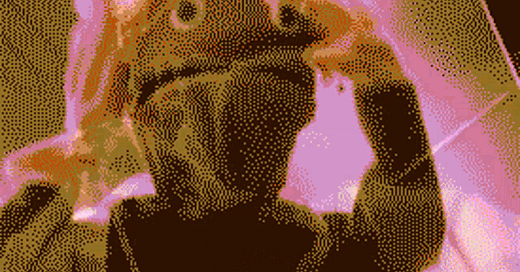


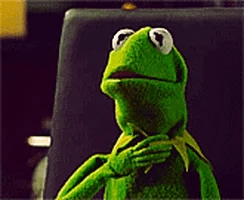
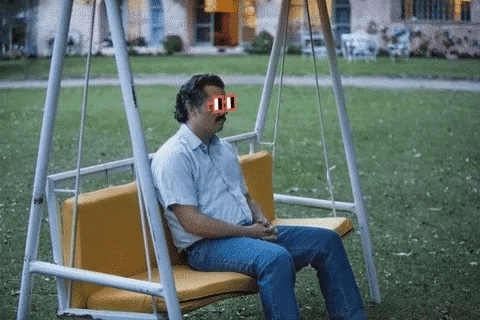
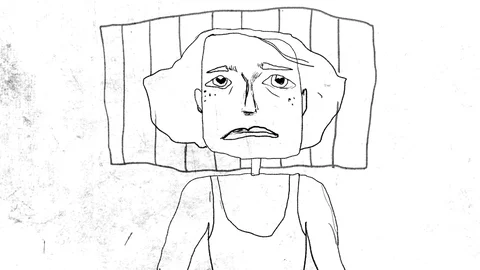

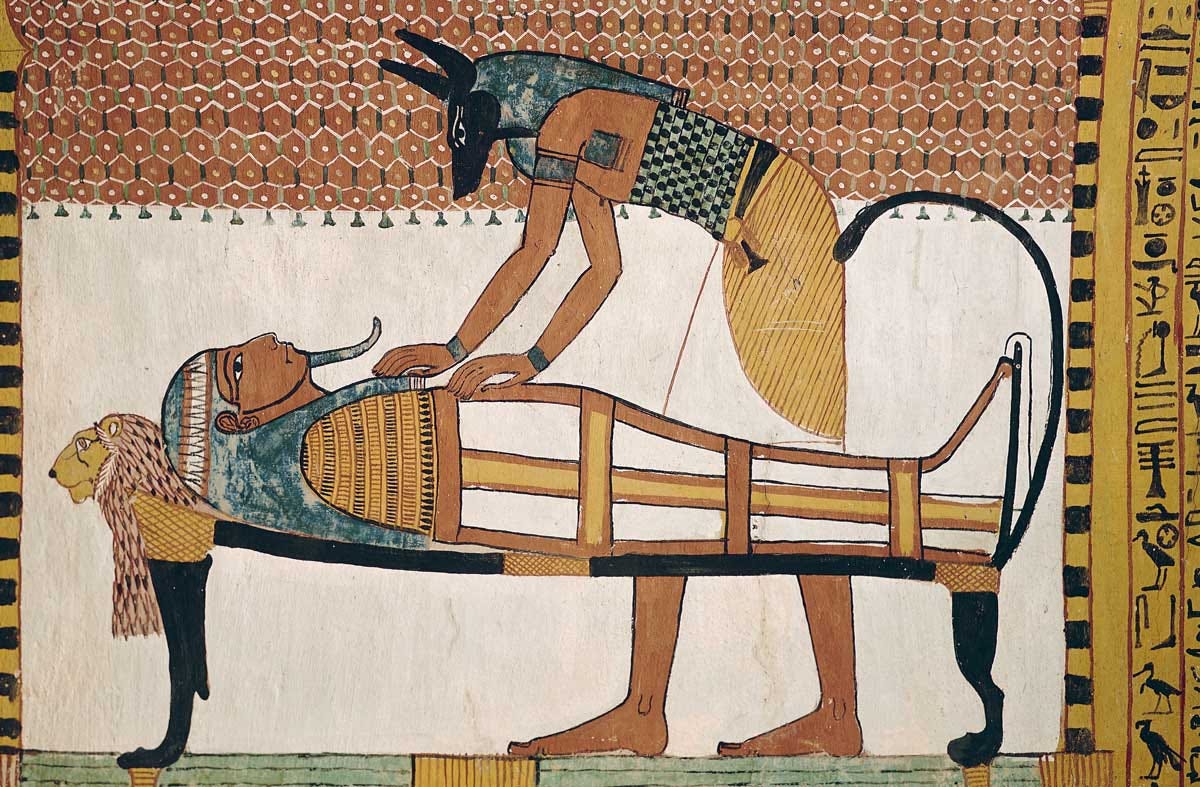
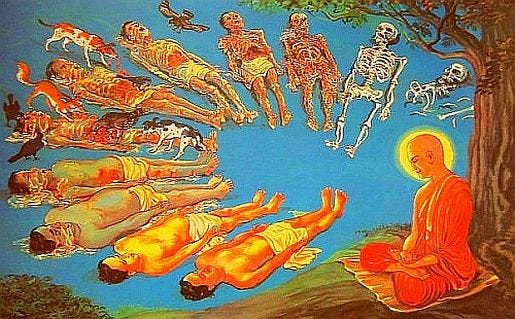
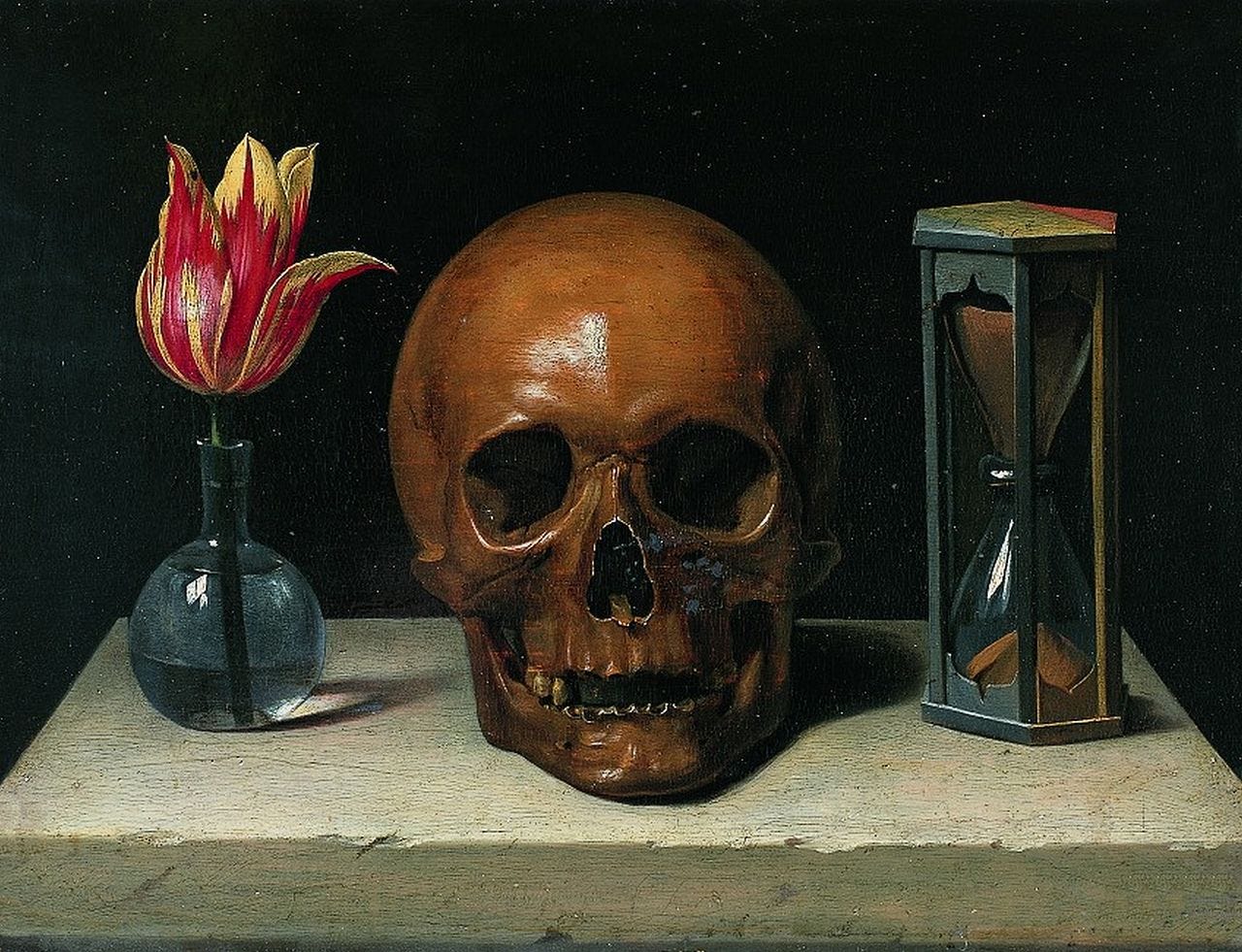
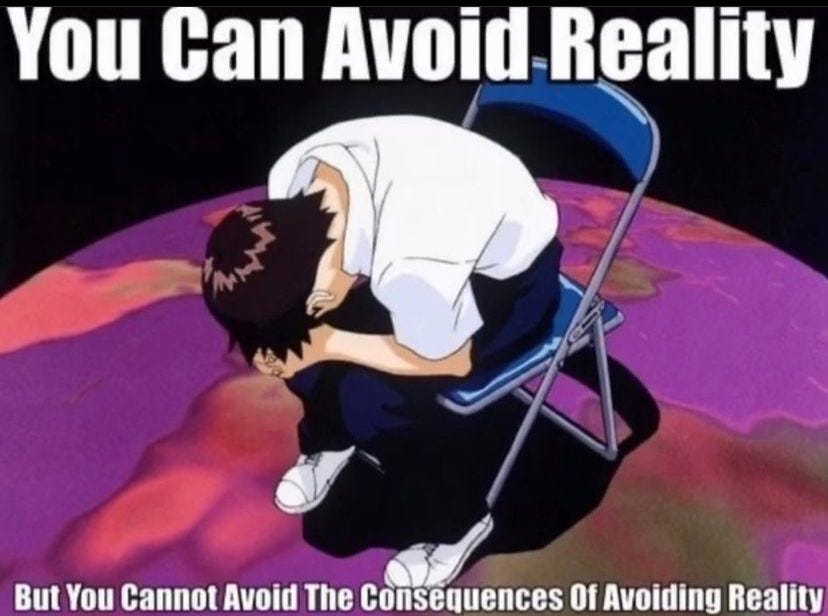
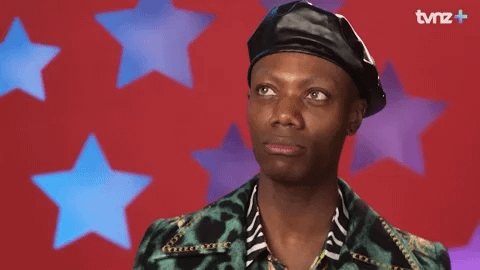
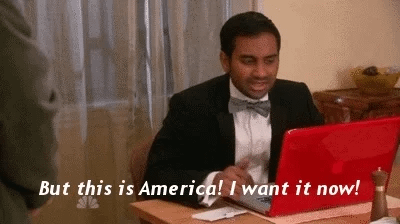

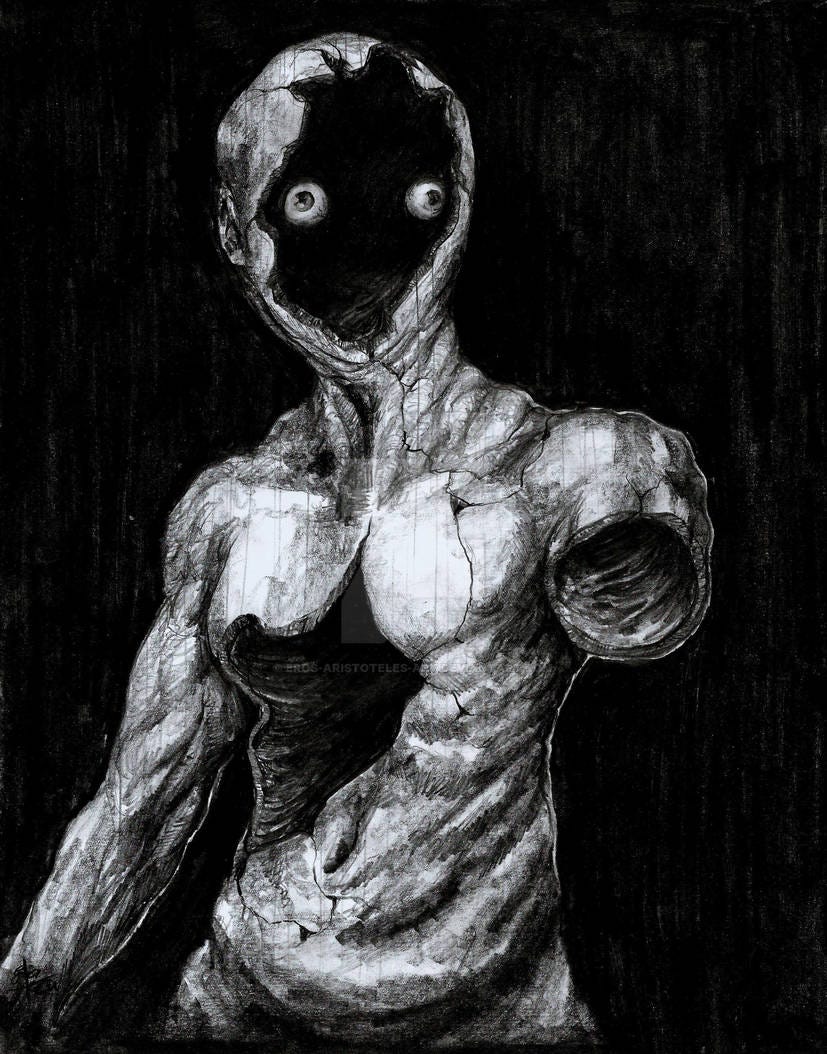
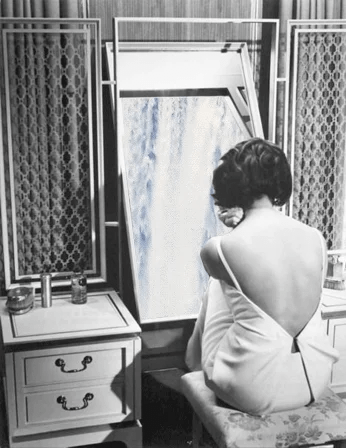
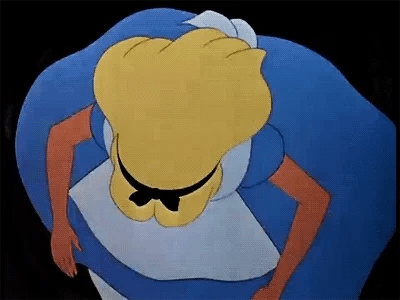
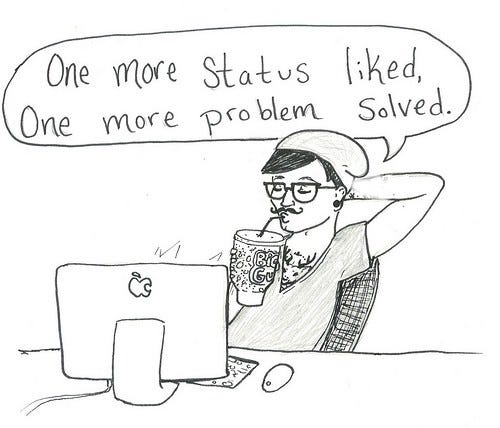
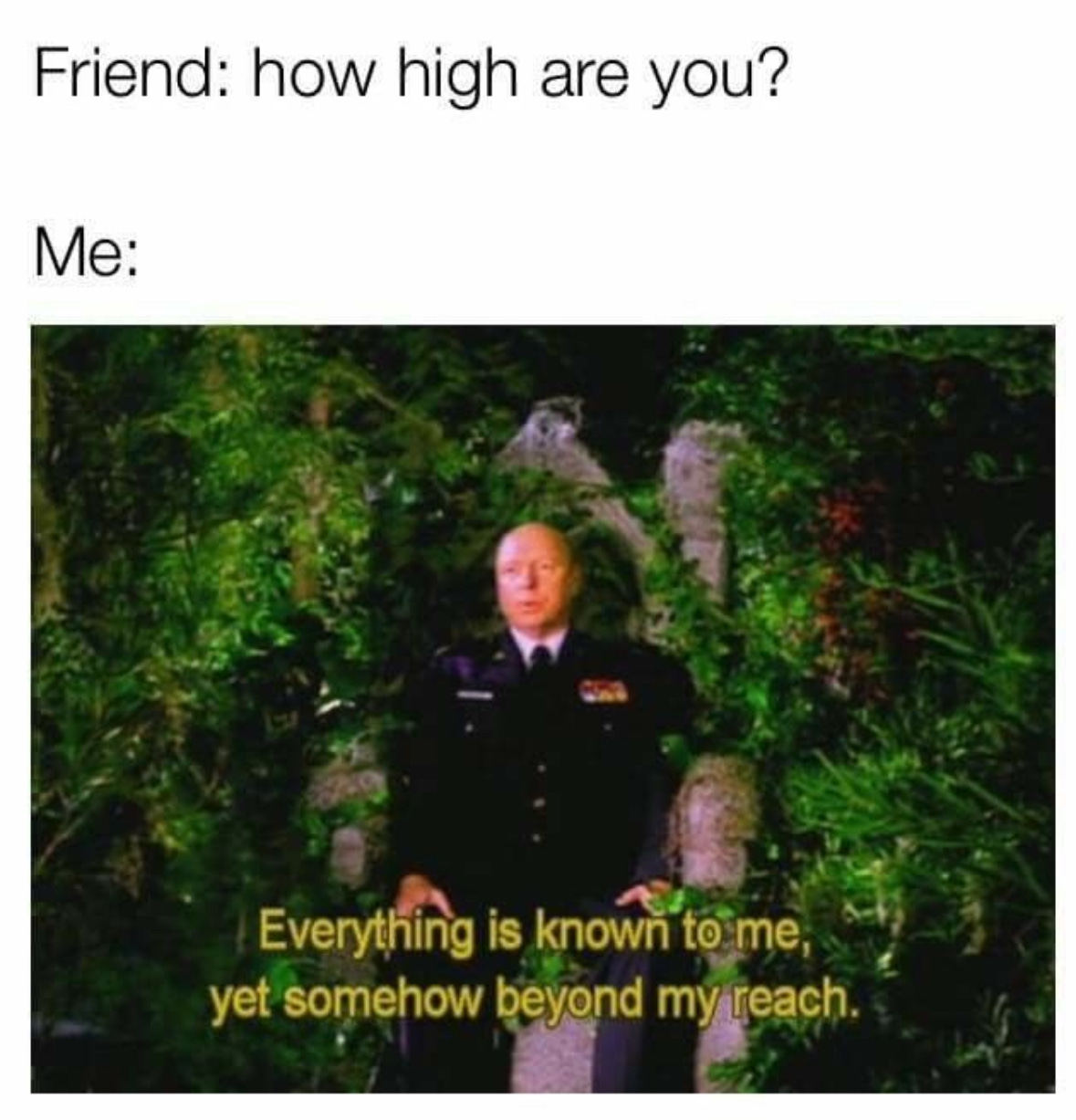
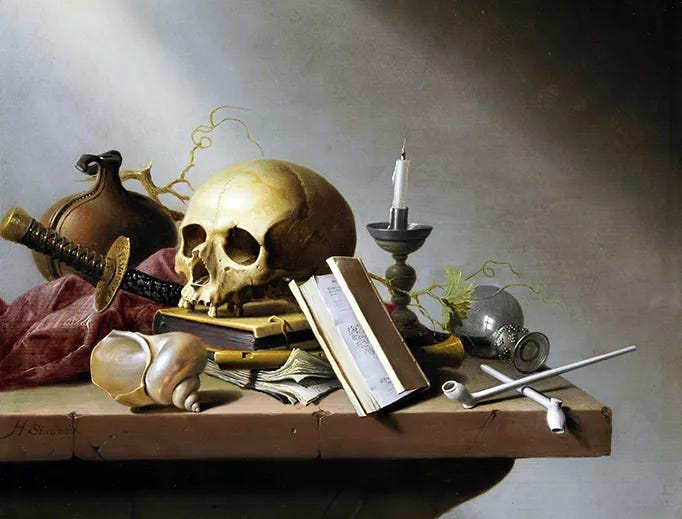

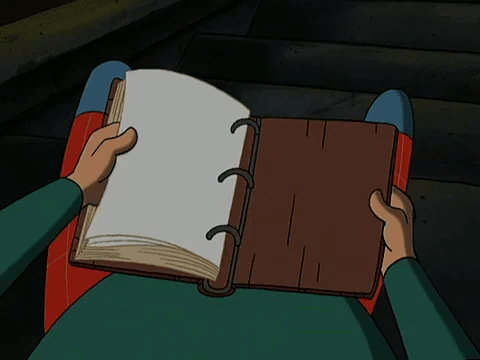
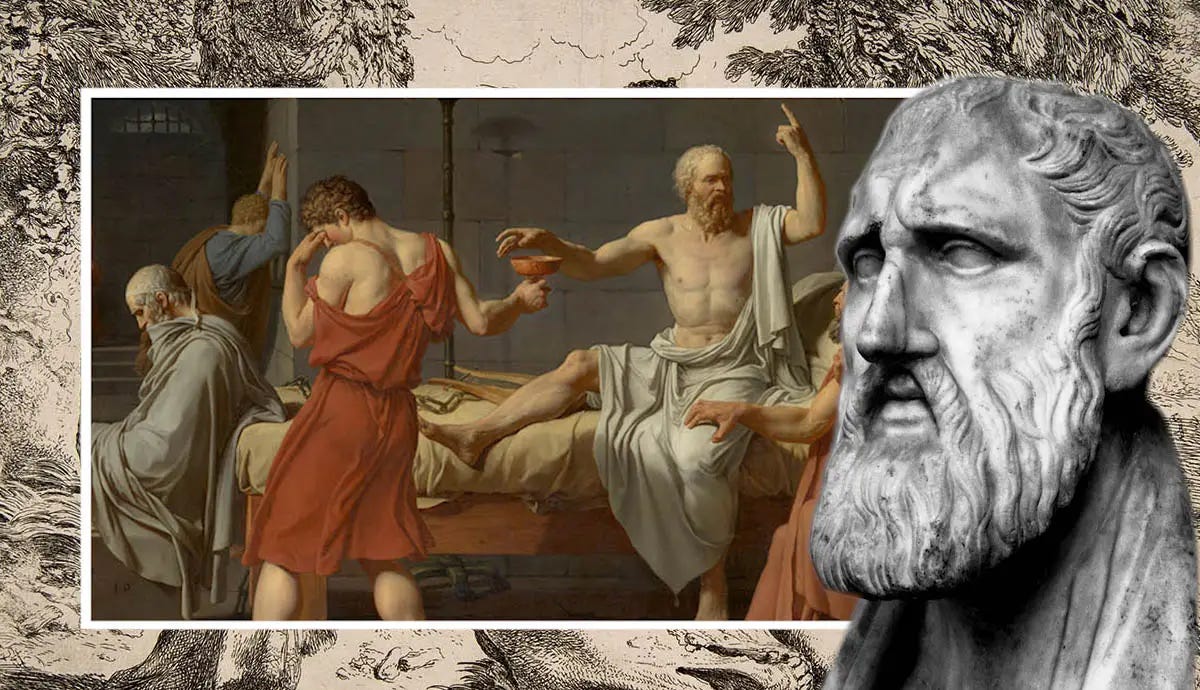
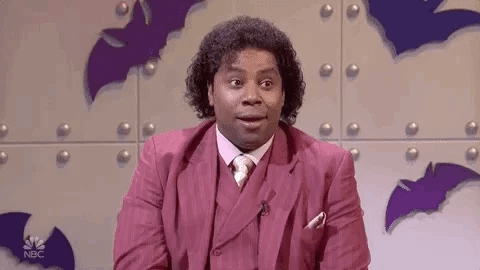
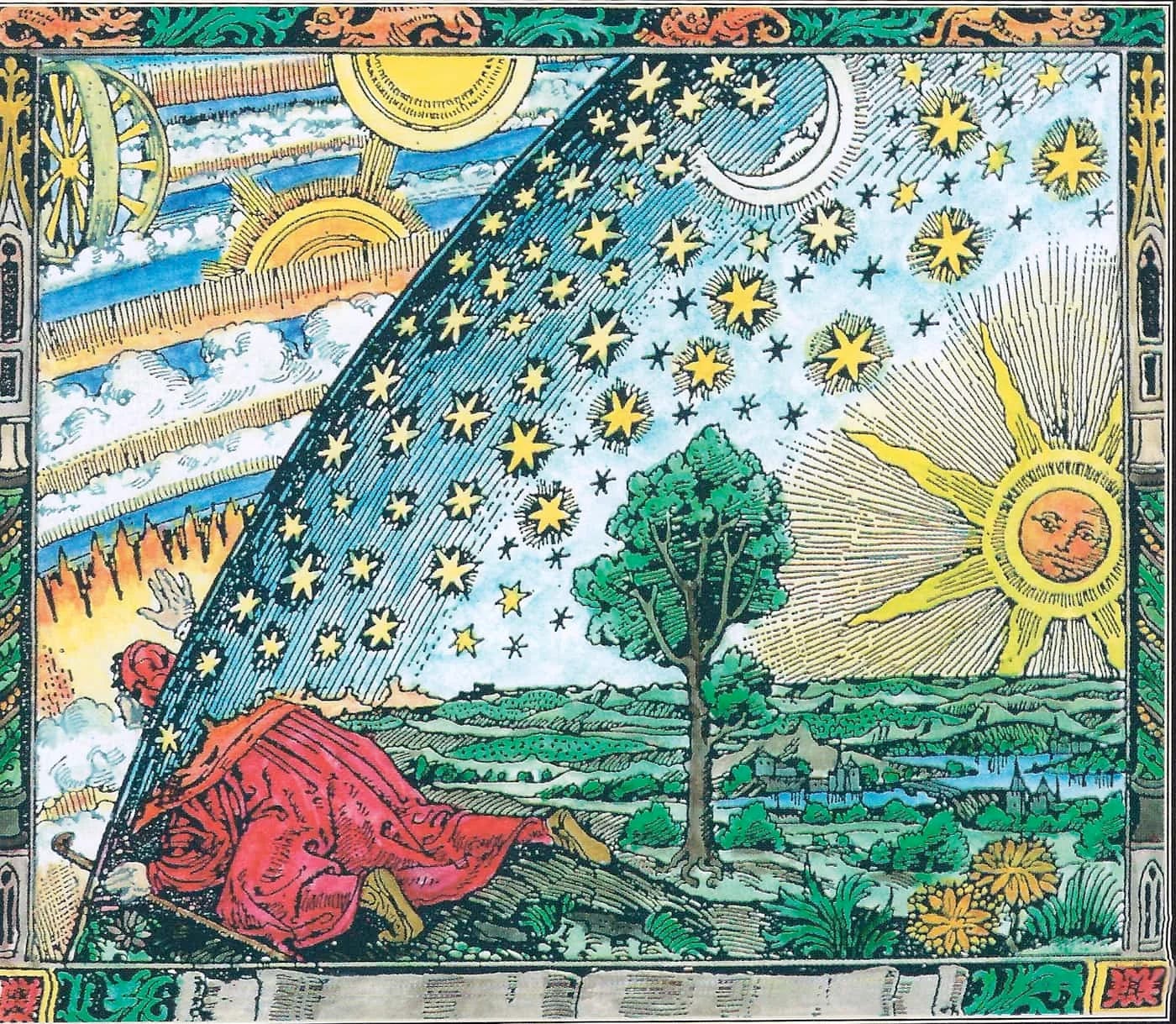
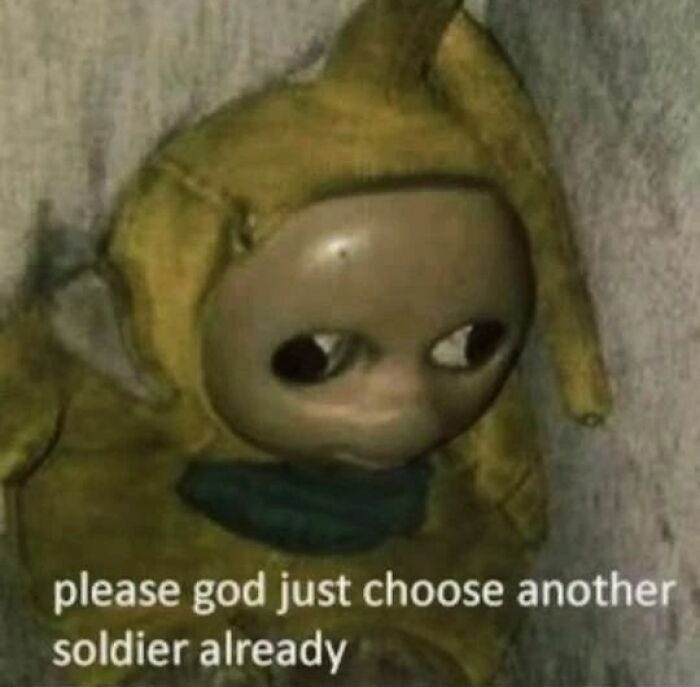

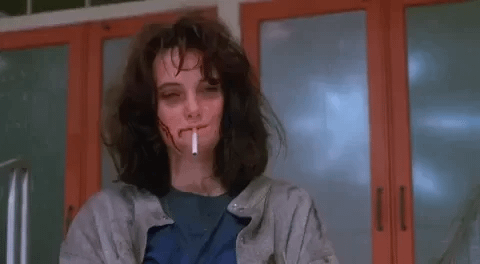
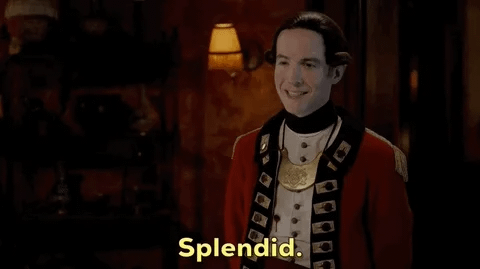

Mollie, I think you would get a lot out of reading a book by the psychologist, Robert W. Firestone, PhD, entitled "The Fantasy Bond". (I am reading the digital version through my library.). He addresses much of what you've written about here. A premise of the book is that, all too often, we (those of us with deep unmet childhood needs) form a fantasy bond with our partners and our children, in order to stave off existential fears - to deny the realities in The Five Remembrances - and, in doing so, constrict our lives, stunt our own growth and the growth of the person with whom we have the fantasy bond, and, often, destroy the healthy bond by having unrealistic demands and expectations that the person can give us what our parents didn't give us. That was a lot, I know:). I just really think this book would interest you. It is so in line with much of what you've written.
My phone wallpaper immediately after reading this? A still life with a skull & flowers & i might not be here tomorrow 🌸💀🌸